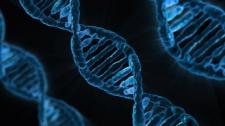We’re on the cusp of a gene editing revolution, are we ready?
By Editorial,
New Scientist
| 07. 27. 2016
THERE’S a certain breed of techno-optimist who likes to talk about “the singularity” – a time when technology progresses so rapidly that life is transformed beyond recognition. The driving force of this hypothetical event is artificial intelligence, but biotech plays a key role too.
...
But there are dangers ahead – not least the science outpacing public consent. Two teams in China have already tried to engineer human embryos. That seems unnecessarily hasty given the ethical issues it raises.
Those who work on CRISPR have a duty to consider not just the science but also how it will be received. As yet, CRISPR has hardly registered in public debate.
Image via Pixabay
Related Articles
By David Jensen, California Stem Cell Report | 02.10.2026
Touchy issues involving accusations that California’s $12 billion gene and stem cell research agency is pushing aside “good science” in favor of new priorities and preferences will be aired again in late March at a public meeting in Sacramento.
The...
By Ava Kofman, The New Yorker | 02.09.2026
1. The Surrogates
In the delicate jargon of the fertility industry, a woman who carries a child for someone else is said to be going on a “journey.” Kayla Elliott began hers in February, 2024, not long after she posted...
By Leah Romero, SourceNM | 02.06.2026
An historical poster from 1977 created by Rachael Romero for the
Wilfred Owen Brigade in San Francisco, California. (Library of Congress)
Members of the New Mexico Legislature’s House Government, Elections and Indian Affairs Committee advanced a memorial Friday that calls...
By Evelina Johansson Wilén, Jacobin | 01.18.2026
In her book The Argonauts, Maggie Nelson describes pregnancy as an experience marked by a peculiar duality. On the one hand, it is deeply transformative, bodily alien, sometimes almost incomprehensible to the person undergoing it. On the other hand...




